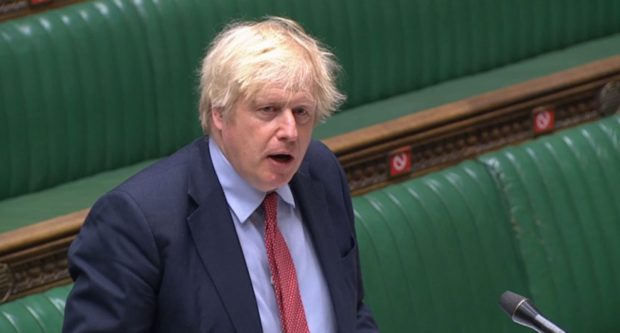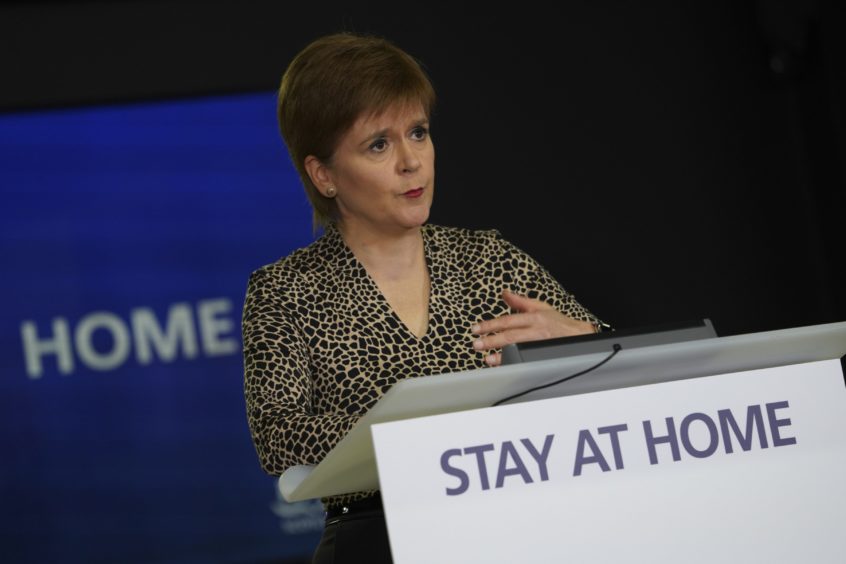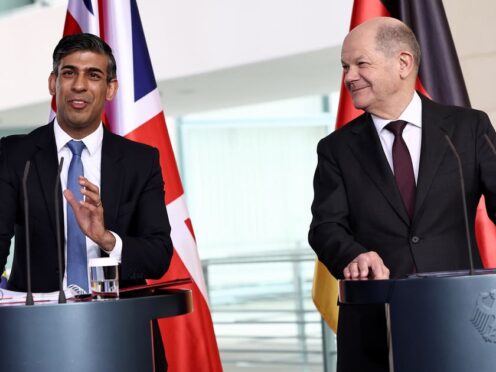Mixed coronavirus messaging from London and Edinburgh led to lockdown rules being flouted and in some cases forced workers north of the border into “unsafe” conditions, academics and union leaders have said.
Boris Johnson’s decision to ditch the “stay at home” message and relax lockdown in England ahead of other parts of the UK in early May saw the “four nation” approach to Covid-19 effectively brought to an end.
GMB Scotland boss Gary Smith told MPs that the subsequent confusion was used by some businesses as a “get out” to stay open, despite risks to the safety of workers.
He said: “In food manufacturing plants you had companies remaining open that were producing chocolate biscuits, like Scotland urgently needed access to chocolate biscuits.
“They remained open on the basis that they were UK companies with a Scottish food plant, and those companies were kept open unnecessarily and it was unsafe.
“So companies did use the UK as a get out in terms of safe working practices, no doubt about that.
“It wasn’t widespread, but it was sufficient enough to be very worrying.”
Professor Linda Bauld, who specialises in public health at Edinburgh University, shared Mr Smith’s concerns.
She told the Commons Scottish affairs committee that some saw the diverging guidance as an “opportunity” not to follow the rules.
She said: “We have not handled this pandemic well in any part of the UK, but I think the messiness in inter-governmental approaches has been very confusing.
“It’s jolly confusing for the UK public to have all these different slogans, different rules that you can meet 10 people or eight people as two households or doesn’t matter how many households, how many times a day you can use the toilet when you go through the house to somebody’s garden and you can’t.
“Most of that is not science based, it’s about governments, in some cases, trying to just be a little bit different, and that’s been quite frustrating for members in public.”
She added: “Some groups have interpreted the divergence as an opportunity not to follow the guidance and that causes me a lot of concern.”
The committee also heard that the journey out of lockdown would see a fresh set of challenges for the tourism, hospitality, drink and oil and gas sectors in Scotland.
Differing guidance around whether you can use the toilet north and south of the border is "not science based", public health professor Linda Bauld tells MPs…it's a case of "governments just trying to be a little bit different", she says "that's been quite frustrating"
— Dan O'Donoghue (@MrDanDonoghue) June 18, 2020
Economics Professor David Bell said: “The oil and gas industry is particularly threatened.
“It’s a higher-earning sector and for Scottish Government revenues is therefore very important, because income tax, which is the main devolved tax that Scotland receives, is particularly dependent on a relatively small number of high-earning people.”
Mr Smith went further and warned that North Sea oil and gas could “wind up prematurely” unless there was a sector plan put in place now.

The GMB leader added: “We need the UK Government to come to the table, otherwise we are going to leave oil and gas in the ground.
“You cannot have a petrochemical sector, you cannot have a pharmaceutical sector and you cannot have advanced manufacturing without access to energy, so we need a plan for our energy sector.”
Mr Smith also warned of hardship in other sectors, he said: “Whisky has been a huge success story for Scotland and the UK but with the Covid crisis and paralysis in the hospitality sector, the Trump tariffs and if there is a botched Brexit, we could turn the success story of whisky into an absolute disaster in terms of job creation and protection.”
The comments come just days after the economy suffered its biggest monthly contraction on record.
The UK economy shrank by 20.4% in April, while official jobs data showed the number of workers on UK payrolls fell by more than 600,000 between March and May.
“We need to start looking to the future, we need an economic plan for key sectors of our economy,” Mr Smith said.
“Our recovery is not going to fall from the sky and it can’t happen where we’re continuing to export jobs that could and should be done here.”











